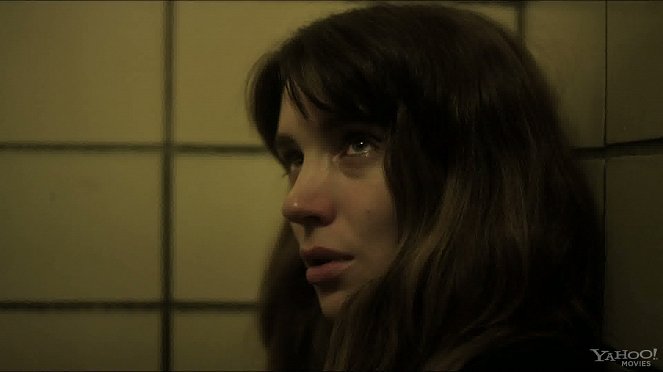Réalisation:
Steven SoderberghScénario:
Scott Z. BurnsPhotographie:
Steven SoderberghMusique:
Thomas NewmanActeurs·trices:
Jude Law, Rooney Mara, Catherine Zeta-Jones, Channing Tatum, Vinessa Shaw, Ann Dowd, David Costabile, Peter Friedman, Mamie Gummer, Polly Draper (plus)Résumés(1)
Jon Banks est un psychiatre ambitieux. Quand une jeune femme, Emilie, le consulte pour dépression, il lui prescrit un nouveau médicament. Lorsque la police trouve Emilie couverte de sang, un couteau à la main, le cadavre de son mari à ses pieds,sans aucun souvenir de ce qui s'est passé, la réputation du docteur Banks est compromise... (ARP Sélection)
(plus)Vidéo (13)
Critiques (9)
Excellente prestation de la part de Rooney Mara, je tiens à le souligner. J’ai choisi de regarder ce thriller après avoir juste lu une seule critique positive, pour ne pas risquer de gâcher le suspense en apprenant des choses et en investiguant sur le film. Le scénario est le point fort de l’histoire et les quelques fois où je me suis dit qu’on partait peut-être dans une direction douteuse, j’en ai pris pour mon grade. Le dénouement est non seulement surprenant, mais il tient aussi plus ou moins la route. Et je terminerai comme j’ai commencé, en soulignant les prouesses de Rooney Mara !
()
An outstanding and rather (very) subversive genre piece which stands and falls with its conclusion. And it‘s with that final explanatory and point making last ten minutes that there is a problem, and not just one. Not that it’s borderline stupid or that it doesn’t make any sense, but.. There simply are few absolutely crucial buts. Which makes you doubly sorry, especially with a movie that’s coherent as this one.
()
SPOILER ALERT! – I don't really trust Steven Soderbergh in the long run, but a film with a reputation for a masterpiece, especially with such a packed cast, I was happy to roll with. And I got burned, even though it didn't seem like it at first. The deception (although at that moment unknown to the viewer) was intricate, thorough, and ultimately suspenseful, because it's not clear for a long time which piece of information is important. But once the topics started to overlap too much and the actions of pharmaceutical companies helped the main hero uncover the plot, I knew something was wrong. Moreover, as someone who works in the field of psychiatry, I can't escape the impression that Side Effects does a disservice to mentally ill people. And I'm also bothered by the final outcome of the Scott Z. Burns screenplay, in which women are unjustifiably punished. Combined with Catherine Zeta-Jones' paper-thin lines, clumsy paranoid twists, and a desperately lacking catharsis, I am officially giving up on Steven.
()
Soderbergh rocks. The brilliant genre change in the middle of the picture is just the type of hacking I approve of. The untraditional development of the plot and the characters that really work - awesome Law and Rooney Mara confirms his status as one of the best young actors in the branch. And then there’s Newman’s chillingly captivating music. A delicacy that shouldn’t be overlooked and that is better not to know too much about in advance.
()
SPOILERS AHEAD. With the opening Psycho shot, Soderbergh tips his hat to Hitchcock, the father of grown-up thrillers, for whom playing with the viewer was also more important than the convincingness of the games that the characters play with each other. The camera angles are improbable, yet effective and full of meaning. They point out the deviant nature of reality as Emily perceives it (or rather how we are supposed to think she perceives it), often situated outside the centre of the shot (of course, if she is speaking for herself, i.e. not in her role, the centre belongs to her). The off-kilter shot compositions give rise to the disturbing feeling that something is missing and that, like Jon, we do not know everything. Whenever a close-up is used, it has a “higher” justification, which is revealed in the second half of the film. Furthermore, the close-ups, some of the dialogue and the music lead us in the wrong direction, creating the false impression that this is a pharmaceutical thriller with dangerous drugs as the main culprit (Ablixa ultimately turns out to be only a MacGuffin), or perhaps a mysterious film-noir (the Haitian who saw a ghost, the eerie “ringing” musical motif recalling the sleigh bells in Belle De Jour). But then comes the first twist, bringing about changes in the narrative perspective and the existing allocation of roles. Only the second viewing makes it possible to appreciate the casualness with which we are made aware of the fact that Emily is faking her mental disorder. Her first scene begins with a close-up of her lips, to which she applies lipstick before her performance. She is subsequently surrounded by mirrors throughout the first half of the film. Doubts about who is actually the culprit and who is the victim – doubts that give rise to a significant part of the film’s dramatic tension – persist even after the final shot, which serves as a symbolic closing of the circle. Instead of a linearly constructed thriller with clearly defined characters, we watch a disturbingly cyclical detective story (like a boomerang, the crime that Martin committed comes back to haunt him) with a capricious perpetrator. In addition to flawless craftsmanship, Side Effects offers warnings about the misuse of medical authority (and confidential information in general) and allusions to the financial crisis. Mainly, however, the film refers to the time of its making through the lens of a cynical society in which money and prestige have greater value than human life. Soderbergh has dealt with the business-like aspect of interpersonal relationships before, but thanks to a genre allowing more consistent (or more ruthless, if you prefer) manipulation of the characters, in Side Effects he succeeded in getting down to the marrow. 90%
()



Annonces